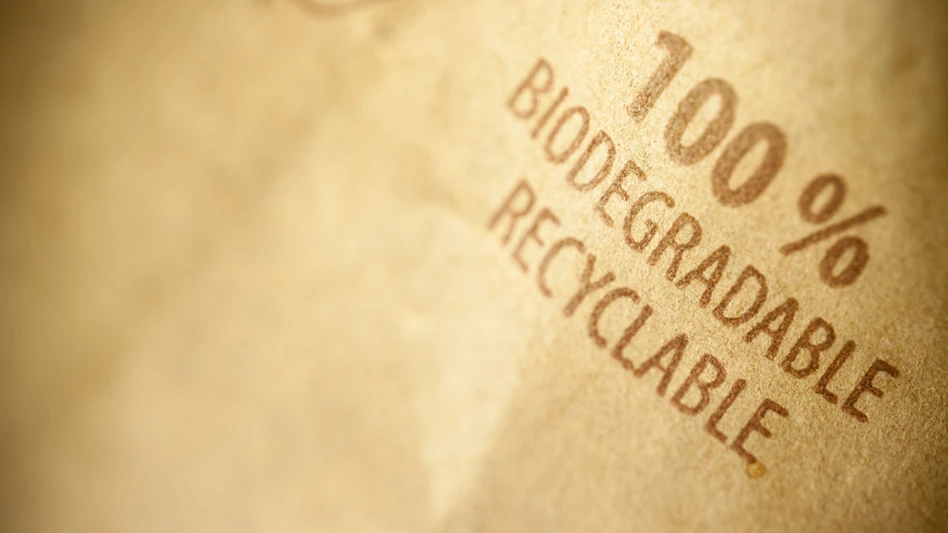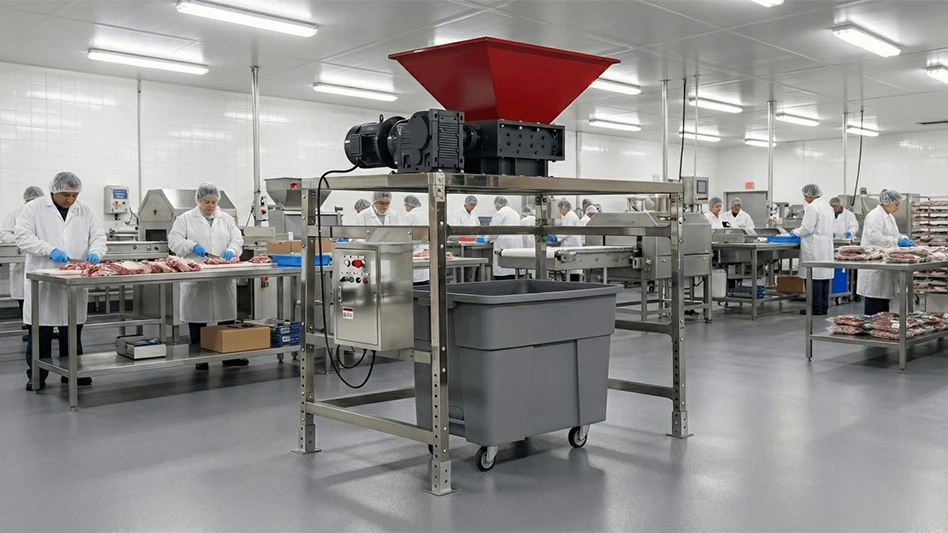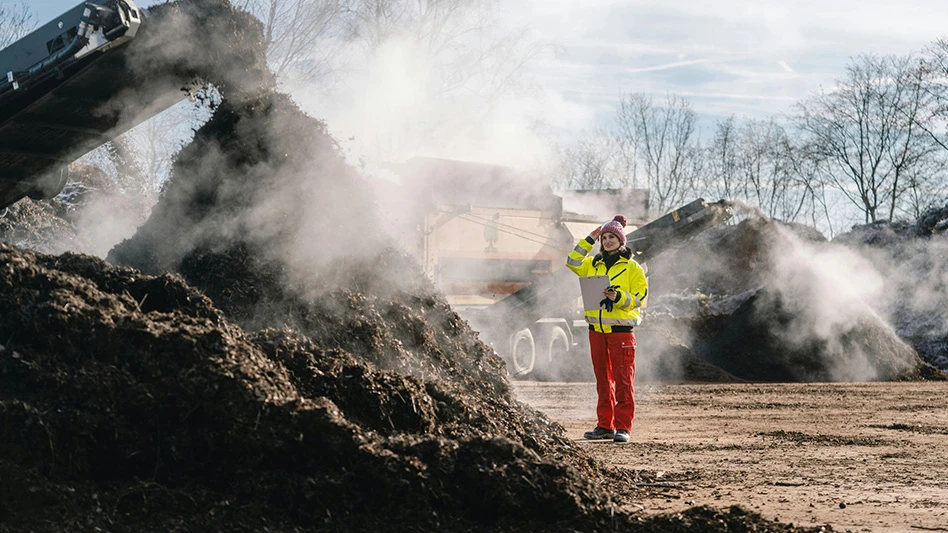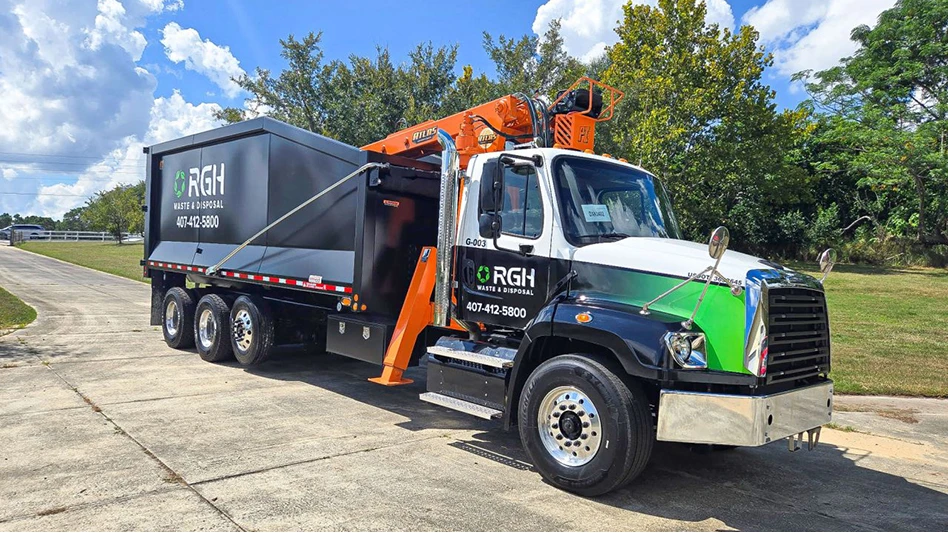
Olivier Le Moal | stock.adobe.com
The Composting Consortium, a collaboration of industry partners managed by Closed Loop Partners, has announced the launch of its Compostable Packaging Degradation Pilot. The group says the initiative is the most comprehensive collaborative study of real-world compostable packaging disintegration in the United States to date.
The project marks a milestone for the consortium, as it aims to improve available data on how certified, food-contact compostable foodware and packaging is breaking down at various types of composting facilities. Participating facilities include Ag Choice in Andover, New Jersey; Atlas Organics in Spartanburg, South Carolina; Black Earth Compost in Gloucester, Massachusetts; The Foodbank Inc. of Dayton, Ohio; Happy Trash Can Curbside Composting in Bozeman, Montana; Napa Recycling, Napa, California; Specialized Environmental Technologies Inc. in Minnetrista, Minnesota; Veteran Compost of Aberdeen, Maryland; and Windham Solid Waste Management in Brattleboro, Vermont.
Working with these composting facilities across the U.S., the pilot will evaluate the disintegration of more than 30 types of certified compostable products and packaging at facilities operating with varying climates, composting methods and equipment. Products evaluated include compostable cutlery, molded fiber bowls, bioplastic cups and snack packaging. Data gathered from the assessment will help guide the consortium’s effort to align the growth of compostable packaging with on-the-ground operational and business needs of large-scale composting operations.
The pilot was developed with input from the consortium’s partners, including industry collaborators like the U.S. Composting Council, the Compost Research and Education Foundation, the Biodegradable Products Institute and others. Closed Loop says these stakeholders contributed technical knowledge to ensure the pilot’s objectives, methodology and data align with the operational realities of composting facilities and support circular and economically viable outcomes for composters.
Data collected from this pilot will be donated to the Compostable Field Testing Program (CFTP), a not-for-profit international research platform that facilitates field testing in North America. The CFTP has been designed to develop comprehensive baseline data that correlates composting conditions with the disintegration of common compostable products and packaging. The consortium’s donation of this data will accelerate the open-source publication timeline for the CFTP’s data set, Closed Loop says.
Additionally, the pilot will serve as a trial for what Closed Loop calls the first, and still-developing, in-field standard for assessing the disintegration of compostable items at compost facilities, under development within ASTM International. Results from this pilot will help to enhance and accelerate the final ASTM field test standard through ASTM Committee WK80528 for both mesh bag and bulk dose test methods. CFTP is supporting the pilot by providing its methodology, composter training and operations. Resource Recycling Systems (RRS), a sustainability and recycling consulting firm based in Ann Arbor, Michigan, will administer the onsite data collection and lead the data analysis and reporting.
“The CFTP was collaboratively launched in 2016, knowing that our industry needed more open, available data about the correlations between composting conditions and the disintegration of common compostable products,” says Diane Hazard, executive director of the Compost Research and Education Foundation, a founding partner of the CFTP. “The foundation is excited to be part of this important work. By donating data to the CFTP, Closed Loop Partners and its Composting Consortium help enable our organization to launch an open-source database on compostable packaging degradation results.”
The EPA estimates that around 4 percent of food waste is composted in the U.S., and as the composting landscape in the U.S. evolves, new materials are flowing through the organics stream. With these changes comes increasing pressure to successfully recover and process food scraps and food-contact compostable packaging. The compostable packaging market is poised to grow 17 percent annually between 2020 and 2027, adding complexity to the challenge. With what Closed Loop calls lookalike and imposter materials contaminating composting and recycling facilities, composters face challenges in efficiently processing inputs and maximizing valuable outputs, Closed Loop says.
“Systems change starts with understanding what is true in a supply chain today and partnering with stakeholders to create the future we want to see,” says Kate Daly, managing director of the Center for the Circular Economy at Closed Loop Partners. “We are grateful for our partnerships with industry leaders and compost facility operators as we identify a path forward to increased diversion of valuable resources from landfill while driving value for compost manufacturers.”
Closed Loop says the pilot is a critical step in the Composting Consortium’s broader work to identify best practices in areas including consumer understanding of compostable packaging labeling and collection, sortation and sensing technologies and policy. The consortium says it will continue its collaborative work to invest in a roadmap of information that can support the composting infrastructure in the U.S., find ways to increase the amount of food waste diverted from landfills and determine where compostable food packaging can add value to the system.
Latest from Waste Today
- New York finalizes greenhouse gas emissions reporting regulations
- EPA selects 2 governments in Pennsylvania to receive recycling, waste grants
- NWRA Florida Chapter announces 2025 Legislative Champion Awards
- Yolo County reports fatality at Central Landfill
- New Way expands Canadian presence with Joe Johnson Equipment partnership
- Buffalo Biodiesel shares updates on facility modernization, NYSDEC compliance
- CETY launches HTAP platform for anaerobic digestion facilities
- Terex Ecotec announces Blue Machinery as distributor





